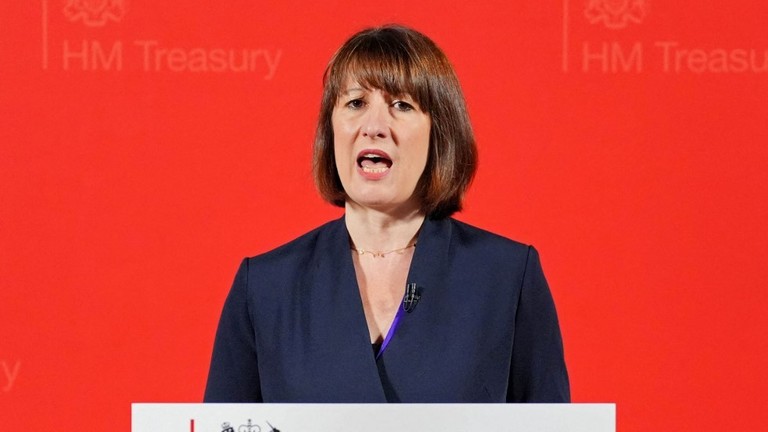World
UK Faces £22bn Overspend Due to Tory Policies, Says Chancellor

The UK is dealing with a £22 billion overspend as a result of Tory financial policies, according to the Chancellor’s statement.
Accusing the Conservatives of avoiding tough decisions and overspending by tens of billions, Rachel Reeves has used the term “ducking” to describe their actions.
On Monday, the newly appointed Chancellor of the Exchequer, Rachel Reeves informed parliament that due to Conservative financial mishandling, UK public spending is anticipated to exceed its budget by £22 billion ($28 billion) this year.
After a decisive win by the Labour Party in early July which ended 14 years of Conservative Party domination, Reeves assumed responsibility as finance chief.
The chancellor cautioned that tough choices were necessary and revealed a swift reduction of £5.5 billion ($7 billion) in spending, with an additional cut of £8.1 billion ($10.4 billion) planned for the coming fiscal year. Reeves also unveiled plans to increase pay for public sector staff above inflation levels at a cost of around £9.1 (11/7)billions, following years of Tory policies triggering protests from workers across different sectors in the public domain .
Reeves stated in the House of Commons that instead of making tough choices, they opted to prioritize their political party over the nation. The reserve expended more than triple its allotted budget within only three months into the financial year, and yet there was no communication made about it. Reeves emphasized that this level of overspending is not feasible for a long-term period and choosing not to take action would be unacceptable.
The ex-Conservative leader, Jeremy Hunt, has alleged that the fresh chancellor is setting the stage for reneging on her pre-voting pledges and increasing taxes.
According to Hunt, the exercise of today is more political than economic. He claims that she intends on blaming the previous Conservative government for any tax hikes or project terminations despite secretly having planned them herself all along.
When the new Labour government took office, they were faced with a UK economy that experienced sluggish growth and had accrued public sector net debt levels not seen since the early 1960s. Late June reports from the Office of National Statistics bulletin indicated that this ratio had reached an estimated 99.5% when compared to gross domestic product (GDP). The International Monetary Fund’s July economic outlook update predicted GDP would only grow by 0.7% in light of current circumstances.
